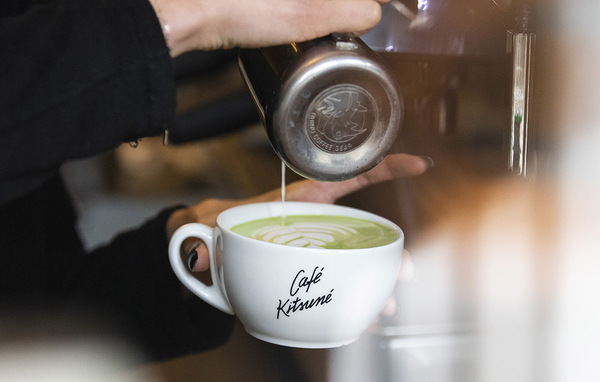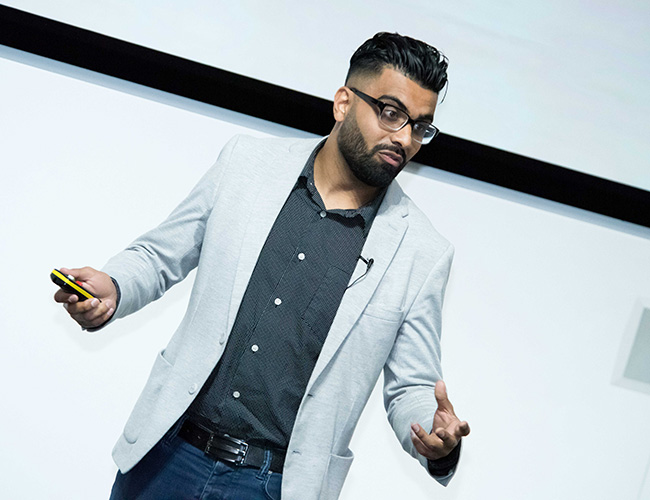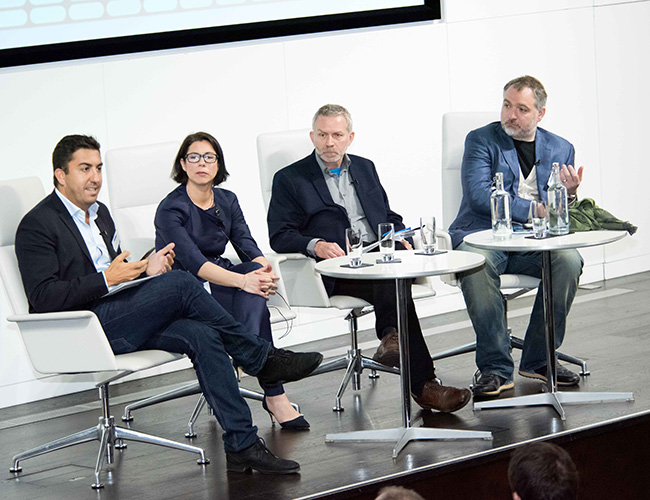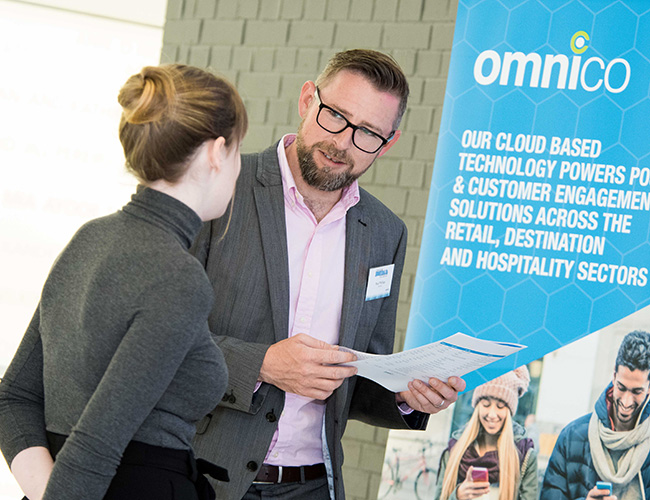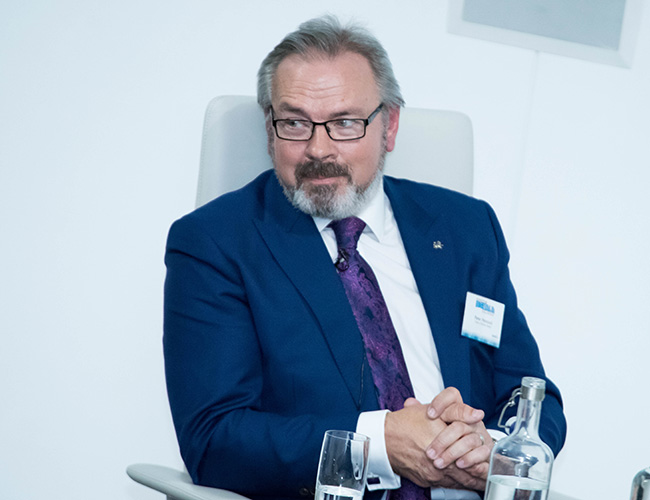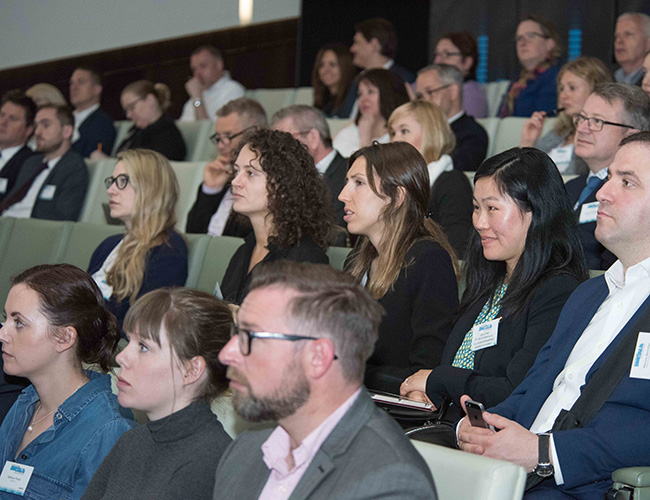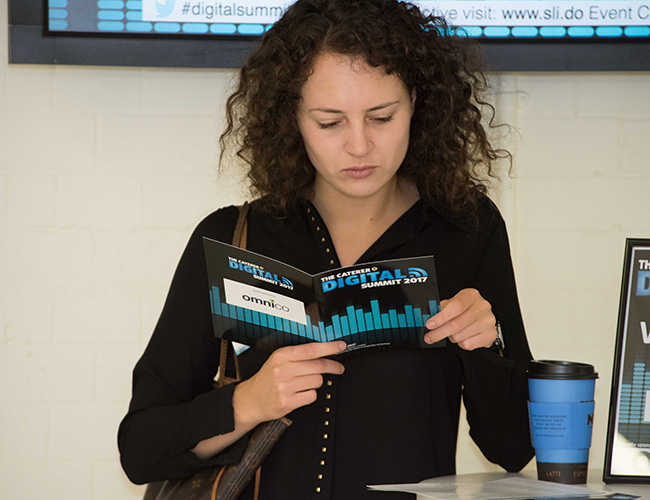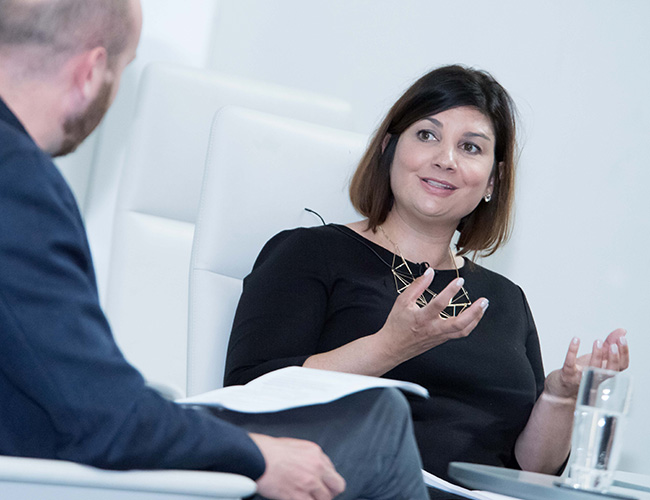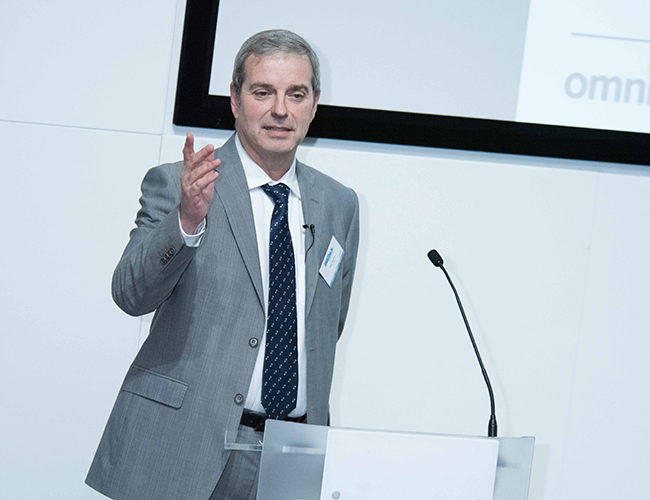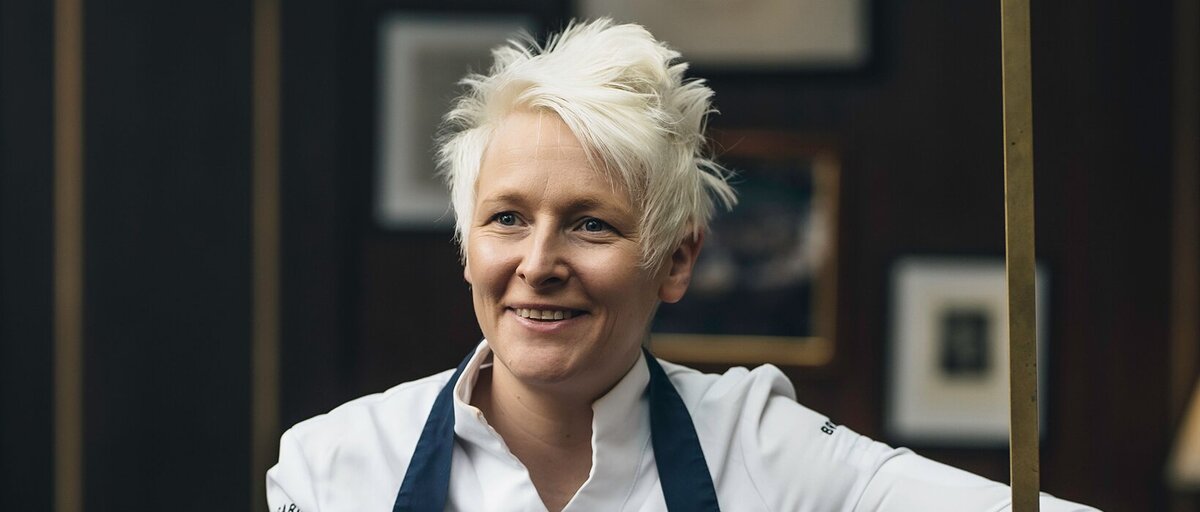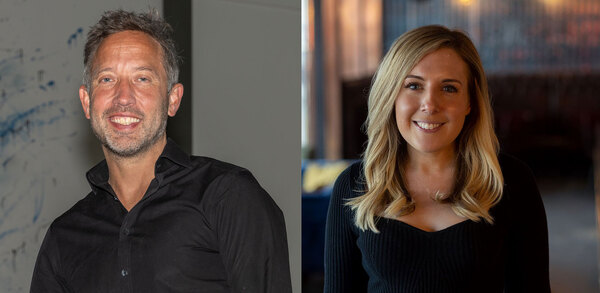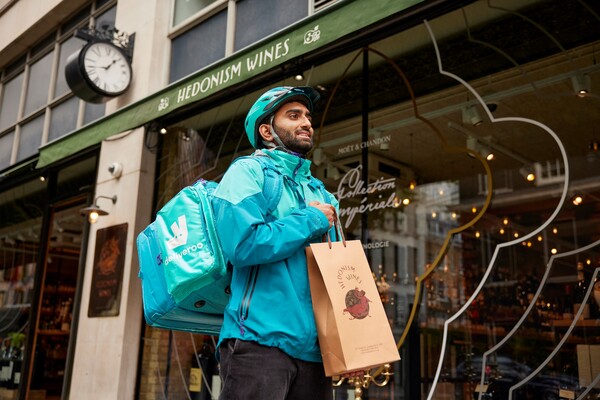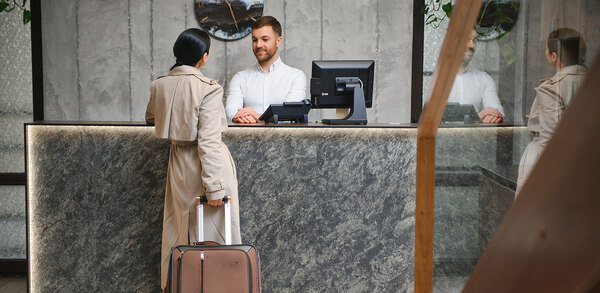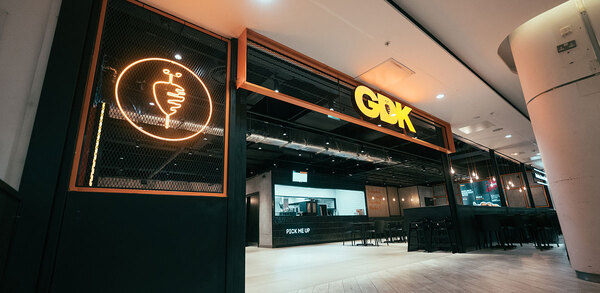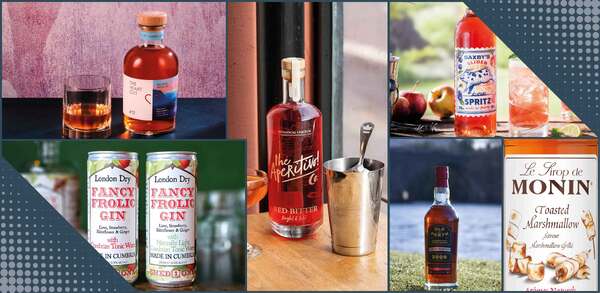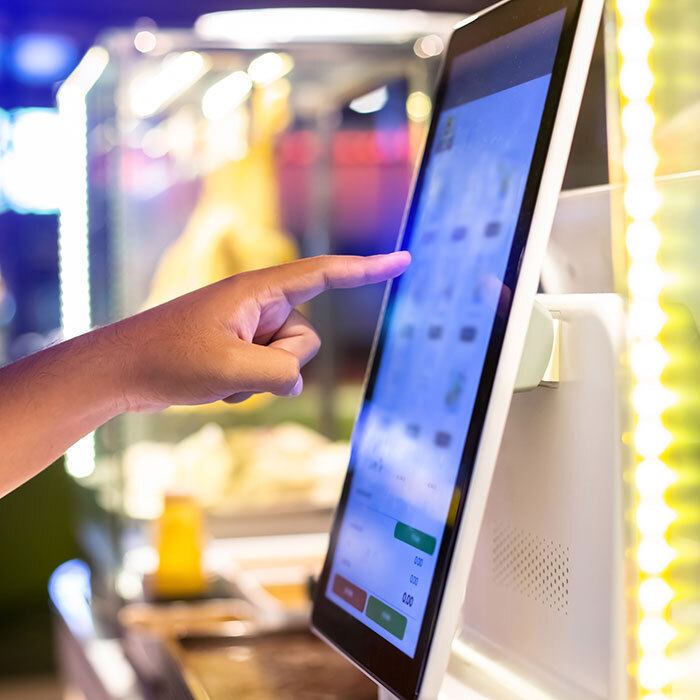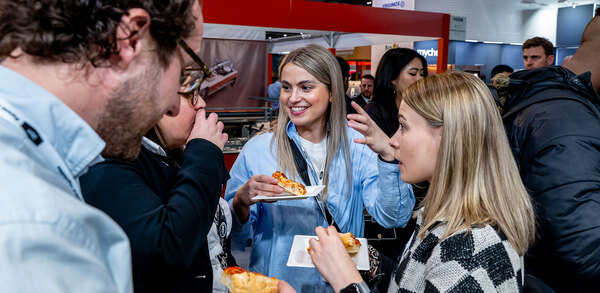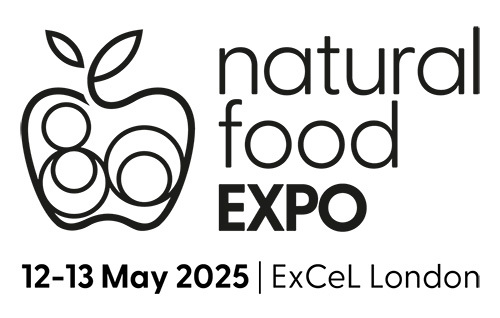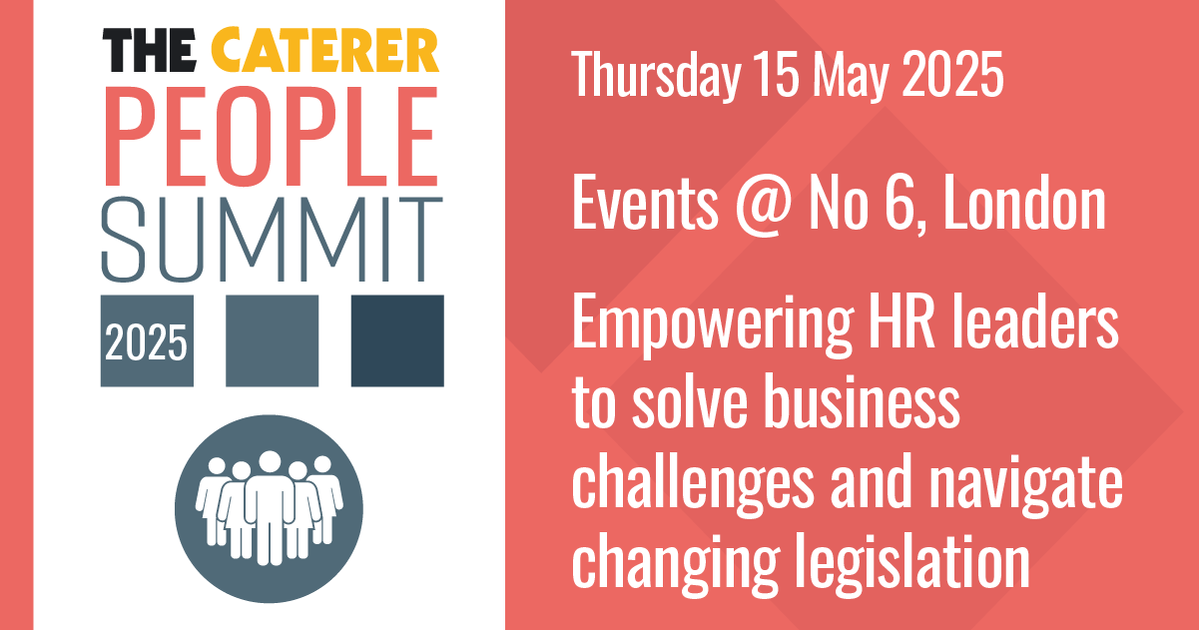The Caterer Digital Summit spring 2017
Last week The Caterer Digital Summit, sponsored by Omnico, explored subjects including consumer habits, video marketing and virtual reality technology. The Caterer's deputy editor James Stagg hosted the event and Rosalind Mullen was there to provide a round-up of some of the highlights
At The Caterer Digital Summit, held last week at Euston Square in London, some of the finest technology gurus in the country gathered together to discuss how the hospitality industry can benefit from the increasing digitisation of the sector.
Tom Athron, group development director at John Lewis Partnership, opened the event by sharing ideas from the retail industry on how to successfully embed a digital culture into a service organisation while retaining its personal experience.
The company has invested more than £500m in its digital and data operations as part of a strategy to drive online sales higher than those in store. The programme, which has included the launch of My John Lewis and My Waitrose loyalty cards, is focused on gathering greater analysis of shoppers and their buying habits. Looking ahead, he said the company was aiming to make a connection between its two loyalty cards to provide a seamless experience for customers.
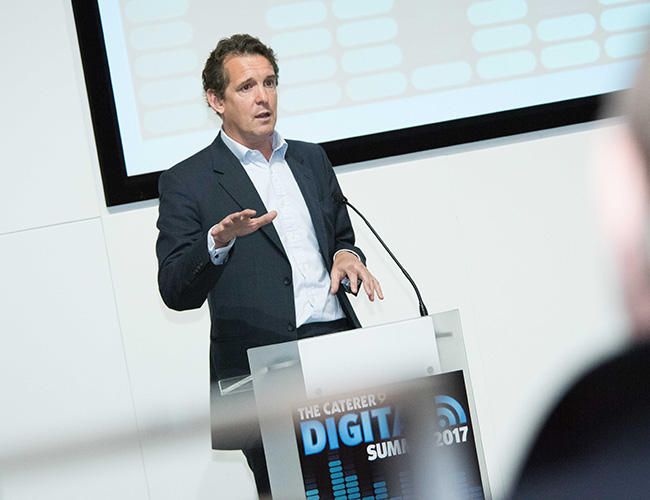
Two in three companies plan to invest in digital technology this year to stay abreast of changes in consumer behaviours. That was the message from Jamie Campbell, business unit director at CGA Strategy, who with CGA's client director Naveed Bhatti outlined trends in website use, booking loyalty and mobile use in the on-trade.
Commenting on the expansion of the restaurant sector, Campbell said the key challenge for operators was to drive loyalty. "There are 20.9% more restaurants in the market since 2011," he explained.
Bhatti went on to explode a few myths about millennials: "[They are] aged 18-34 and account for 55% of eating out, but 39% of them are parents and 37% eat out less than weekly."
The 10 segments identified included âfamily pit-stoppersâ and âcost-conscious championsâ, but it is âtrending tastemakersâ who account for the biggest group and 80% of them use social media and mobile phones to interact with a bar or restaurant.
âYou need to discover who your consumer types are and what they are thinking. And you need to target your customers based on behaviour, not demographics,â he concluded.
The customer journey: digital v the real world
The conundrum of how to integrate a digital journey into your concept without alienating customers stimulated lively debate. Chairing the session was Steve Lowy, chairman of the Hotel Marketing Association. The panel comprised Fergus Boyd, group director/vice-president of digital and IT at Yotel; Nick Davies, co-owner of the Cottage in the Wood in Malvern Wells, Worcestershire; and Suzie Thompson, vice-president of marketing, distribution and revenue management at Red Carnation Hotels. Here are the highlightsâ¦
How important is technology to your business?
ND: The Cottage is a 30-bedroom hotel in the Malvern Hills and the challenge is that 50% of guests want to book digitally and the rest want to phone us. I think it is relevant to understand the interaction that the guest wants. People want experience-led visits. We highlight jazz evenings, events on the website and send pre-engagement emails when they book.
FB: Yotel is high-tech. Some 90% of guests check in using technology. But if they need help there is a 24/7 concierge. Our airport hotels are functional with a lot of mobile bookings, but in our city hotels we donât try to invest in every shiny new toy.
ST: Voicesearch is an opportunity for bookings. What will happen to pay-per-click? We need to be ready for it. There is a real opportunity to be good at this quickly and early.
ND: I find virtual reality technology useful. You can take potential guests through the rooms. We also play with Big Data. We work with a drinks company that has data on customer habits by postcode. When they book, we can stock those drinks.
What are the challenges and opportunities?
ST: Gone are the days of check-in and check-out times. It might be that there is a move to booking time slots. There is almost a case for a new role â" inventory managers. We need to be flexible to give guests what they want.
FB: We are making the best use of technology to sell space. In future, hotels will have multipurpose areas where you can book a room for a minimum of, say, four hours.
ND: There is so much technology out there, but get what is relevant to your customers.
Marketing to hoodies
Getting the marketing mix right and ensuring you are on the right platform to attract the next generation of customers is crucial. Andrew Gallagher, group marketing director at Côte Restaurants, and Mark McCulloch, founder and group chief executive at We Are Spectacular, took to the stage to explore ways of engaging them both online and on site.
Delegates were immediately challenged when Gallagher described âmillennialâ as a misleading term. âBetween 18 and 34 is a big age gap,â he said. âAge is not a definition of people. Some 89% of young people say the internet is important, but 84% of older people think that it is, too.â
He added: âFor us, it is about opening the doors digitally. It is about thinking mobile first. It is about making the content good and making sure the SEO is right. I am a big fan of experts doing an expertâs job.â
McCulloch suggested: âYou need to get staff input, too. If you share the bigger picture, they are more invested. Marketing is seen as creative, but it needs all the data you can find.â
Loyalty schemes: bribery or seduction?
Peter Hancock, chief executive of Pride of Britain Hotels, asked a panel to air their views on the impact of digitisation on loyalty and rewards and how to best use big data. In the line-up were: Julia Davies, co-owner of the Cottage in the Wood; Simon Gaske, customer experience director at Novus Leisure; and Kris Shaw, customer experience director at Soho House & Co. On the subject of generating loyalty, the panel offered the following examples:
KS: Itâs old-school. Staff give out keyrings giving 50% off to customers they feel deserve it. We are looking to replace it with a wider loyalty app. It is a steep learning curve, as some guests wonât touch [digital]. We need different channels to speak to different demographics.
SG: We have an app that aggregates information on how the customer communicates with us and monitors how the team responds. The dashboard is fed by Twitter, Facebook and so on in one stream so we can see reviews and comments and respond immediately. If we get a bad review at 11pm, for instance, we can probably even find them in the bar, give them a free drink â" and clean the loos or whatever they are complaining about. It is a useful tool.
SG: Listen to your customers and form a strategy based on what they want
KS: Donât underestimate how hard it is to integrate with hotel solutions
JD: Donât be over-generous
Video marketing
âYou are more likely to be in an air crash than click on a banner ad,â announced Dan Best, managing director at Unruly. âVideo is more sticky, but itâs tricky.â
He gave seven tips to making sure your video is not only seen, but shared:
1. Set your goals â" clarity of purpose is key, and keep it simple.
2. Be yourself â" authenticity is important. Some 77% of millennials believe content should match the product quality.
3. Make it emotional â" but if you arenât a funny brand, donât do a funny video.
4. Keep it personal â" 81% of millennials like to see an ad on a subject they have an interest in.
5. Use vertical video â" some 30% of consumers keep their phone in vertical lock.
6. Empower consumers â" put them in the driving seat and they will do the sharing for you.
7. Test and learn â" have a social team at the right time.
Fad or future: what will be hot in 2017?
Itâs what everybody in the auditorium wanted to know â" which technologies will be worth the investment this year? Chairing the panel was Carl Weldon, chief operating officer, Europe Hospitality Financial & Technology Professionals, joined by Anthony Ganjoy, chief executive, Curb; Stephen Minall, director-owner, Moving Food; and Richard Valtr, founder, Mews Systems.
The audience were treated to a wide-ranging, stimulating discussion that spanned the need to prepare for voice-recognition technology and the opportunity for hotels to build their own local area networks to improve speed and efficiency. Here is a brief glimpse of the session:
What is coming live in the next 12-18 months?
AG: There is an opportunity for hotels and hospitality venues to create their own local area network. You can connect and stream movies faster. It provides great connectivity. Something that is a possibility would be Google or Amazon moving into recommending restaurants.
SM: Hospitality and retail will come together even more. Amazon does restaurant delivery. There is a lot of crossover with the technology used by Ocado and Amazon and it will affect hospitality â" for instance, wine lists. It means sharing data and figuring out how to connect.
The big interview: Christina Purnell, director of global ecommerce & digital services, Marriott
Marriottâs loyalty programme, with 92 million members, enables it to personalise the guestsâ experience and anticipate their needs. To explore how this hotel giant, comprising 30 brands, is enhancing its strategy, James Stagg spoke to the companyâs director of global ecommerce & digital services, Europe, Christina Purnell. Here are a few key momentsâ¦
What are your plans for keyless entry?
With keyless entry, unless you are doing a new build, you will have a massive investment. People do want to skip the reception desk. They want to check in via an app 24 hours before, download a key and bypass reception. They can also select pillows or order food to be there if they arrive late.
However, you still need the ability to talk to guests and remember who they are. You can evolve technology, but you need to remember the demographics.
Wi-Fi. And bigger TVs. We found the demographic didnât use a wardrobe so there are hooks instead; itâs frequented by business travellers and they wanted ledges rather than a desk; showers rather than baths; the F&B is a deli; and no room service or landline, which is a cost saving.
And you have embraced contact marketing?
In London we have a social media command centre, which captures content that is trending in the region that we can push through to the hotel in real-time. For example, in Europe a backpacker was taking photos of a Lego figure in each destination. We could see he had 400,000 followers and as his next stop was Spain we fixed him up with a hotel. He took his photos there and his followers saw that. We see the future as contact marketing.
What should hoteliers be thinking about next?
Check in early and check out late. We talk about it and it is being tested in the US. But should you charge for it or make it part of a package? Consumers want it, so there needs to be more figuring out how to do that.
People want to digitally connect with hotels. They want mobile check-in and check-out. They want Wi-Fi, but they also want their own Netflix account on the hotel room TV. It gets them to be loyal to your brand.
Creating a seamless guest experience
Mel Taylor, chief executive of the summitâs sponsor, Omnico, shared exclusive research into the technology that caterers are using to improve the guest experience. Here are the headlines:
Mobile payments may be a key opportunity to create loyalty by enabling frictionless self-scan payment; pre-ordering; table reservations; customer recognition; and increased customer loyalty
When it comes to reducing food waste, some 52% of respondents believe âbeing able to predict quantities of food and numbers of people wanting to eatâ will improve operational efficiencies
Some 23% of those surveyed said they would implement mobile booking systems in the next three years
The full report is available at www.omnicogroup.com


